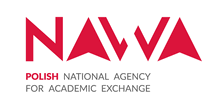Recombinant antibody technologies at VTT
2021.10.08 14:52 - Katarzyna KuźniarAntibodies belong to a family of proteins called immunoglobulins. Antibodies are essential part of the immune system protecting against diseases and harmful pathogens. In addition, antibodies are invaluable reagents in basic research, diagnostics and therapy. Radiopharmaceuticals having both diagnostic and therapeutic capabilities, are gaining more attention and the nuclear medicine market is expected to double during the next five years. The current technologies available for recombinant antibody development at VTT are presented in this seminar. Novel antibodies can be isolated from existing antibody phage display libraries or novel antibody libraries can be constructed upon the need. Selection and screening procedures are designed based on the research question. Enzyme-Linked ImmunoSorbent Assays (ELISA), fluorescence activated cell sorting (FACS) and Biacore T200 are typically used in analysis of the binding properties.
Recombinant antibodies can be produced in bacterial cells at different scales and in different formats, from small scale (usually 1.8 L) up to 9 L culture. In optimized bioreactor cultivations, production yields normally 100-200 mg/L of soluble active Fab or scFv protein. Recombinant antibodies can be converted into different antibody formats (such as IgG, Fab and scFv). In addition, existing monoclonal antibodies can be converted into recombinant proteins. Antibody engineering can be used for instance for modification of binding properties and addition of purification or conjugation tags. This presentation aims to facilitate planning of NOMATEN co-operation in the Radiopharmaceutical field applying VTT’s recombinant antibody technology.
| Załącznik | Wielkość |
|---|---|
| 14.56 KB | |
| 113.88 KB |











